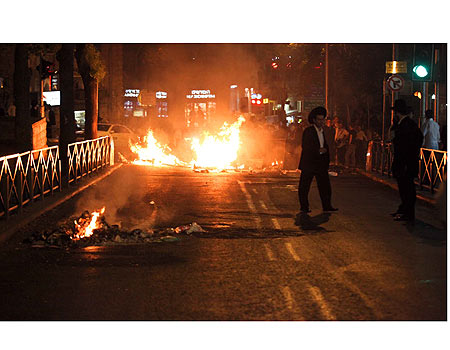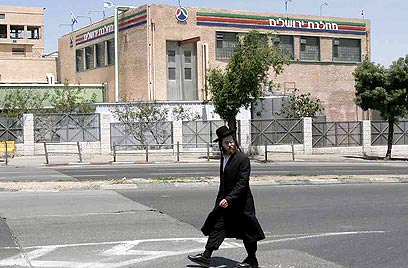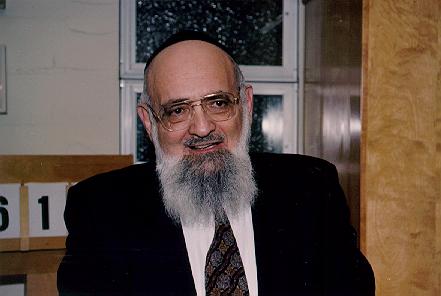 I generally try to keep quiet about Chareidi protests, but things are really getting ridiculous.
I generally try to keep quiet about Chareidi protests, but things are really getting ridiculous.It seems that the Chareidim continue to protest about the removal of graves in Ashdod in order to clear the way for the expansion of an emergency room, which requires special construction to make the room protected from possible missile attack. (Ashdod is well, well within missile range from Gaza.)
First and foremost, halachah clearly permits the removal of graves if there is a public need. In the classic work on issues related to mourning and Jewish law, Rav Yechiel Michel Tuchoshinsky writes in his work called Gesher Hachayyim (Chapter 26) the following:

5. If the grave damages the public (for example, it is adjascent to a road) even if the body was buried with the permission of the owner of the field, on is permitted to move it.This really isn't a matter for halachic debate. It's not a Modern Orthodox vs. Chareidi halachic issue. Everyone considers the Gesher Hachayyim an authoritative work, and even if you didn't, he's basically copying these rules out of the Gemara. It's simply not a matter for halachic debate.
The gaon Rabbi Akiva Eiger added that if the community finds that it is appropriate to move the location of the grave to address communal need, this is considered in every respect like the grave that damages the public which is permitted to be moved.
So why then are the Chareidim protesting?
 Even more interesting is the recent unearthing of a pagan altar at the hospital site, pretty clearly demonstrating that the bones that they found are those of pagans, and not of Jews. I don't know about you, but I'm not familiar with a Jewish altar with an image of a cow on it. Which only makes me wonder again: why are they protesting?
Even more interesting is the recent unearthing of a pagan altar at the hospital site, pretty clearly demonstrating that the bones that they found are those of pagans, and not of Jews. I don't know about you, but I'm not familiar with a Jewish altar with an image of a cow on it. Which only makes me wonder again: why are they protesting?The answer, clearly, is that the protests have much more to do with political power than they do with Torah values or worries about graves being upset. The chariedim feel the need to assert their political might every so often, which I guess is fine when it really does affect their way of life. But when it's about the removal of pagan graves to insure the construction of a protected emergency room, Chareidim don't seem powerful. They seem foolish, petty and self-interested.
And that's not a demonstration of power. It's a chillul Hashem.
















